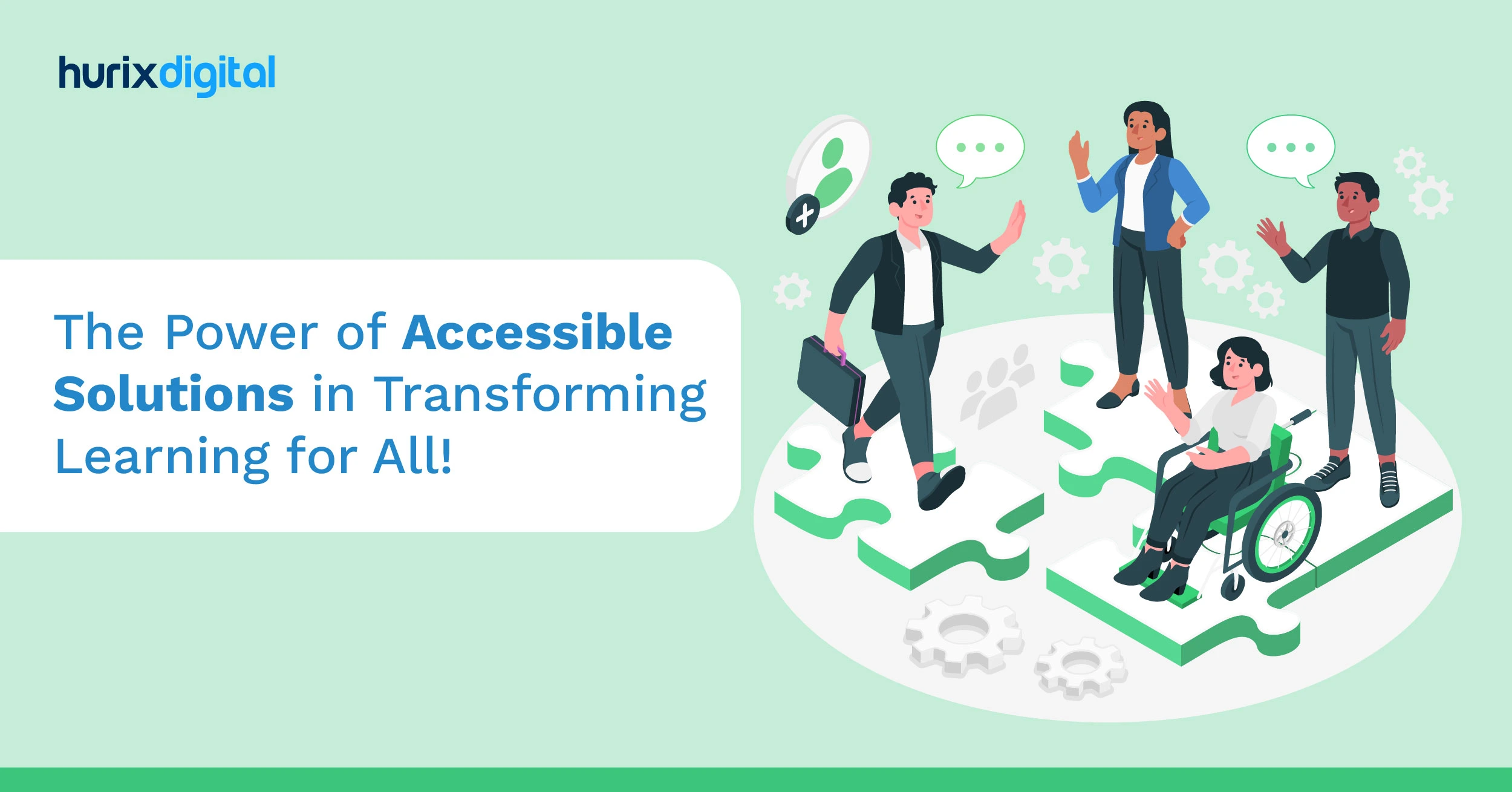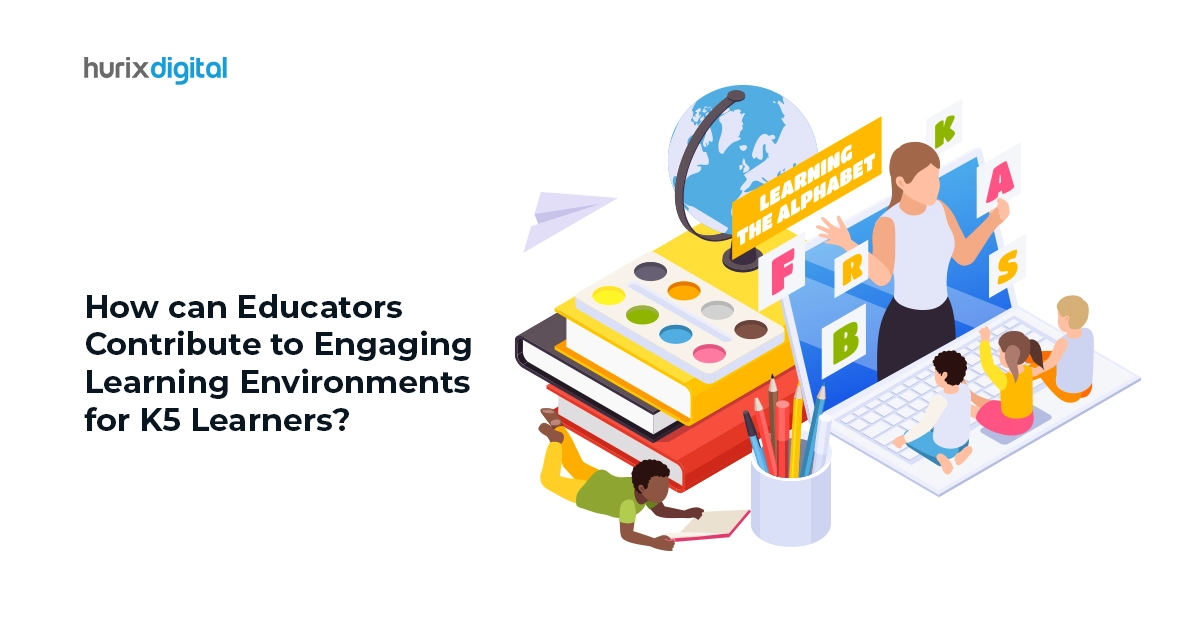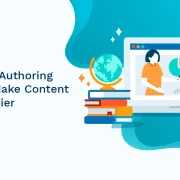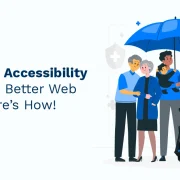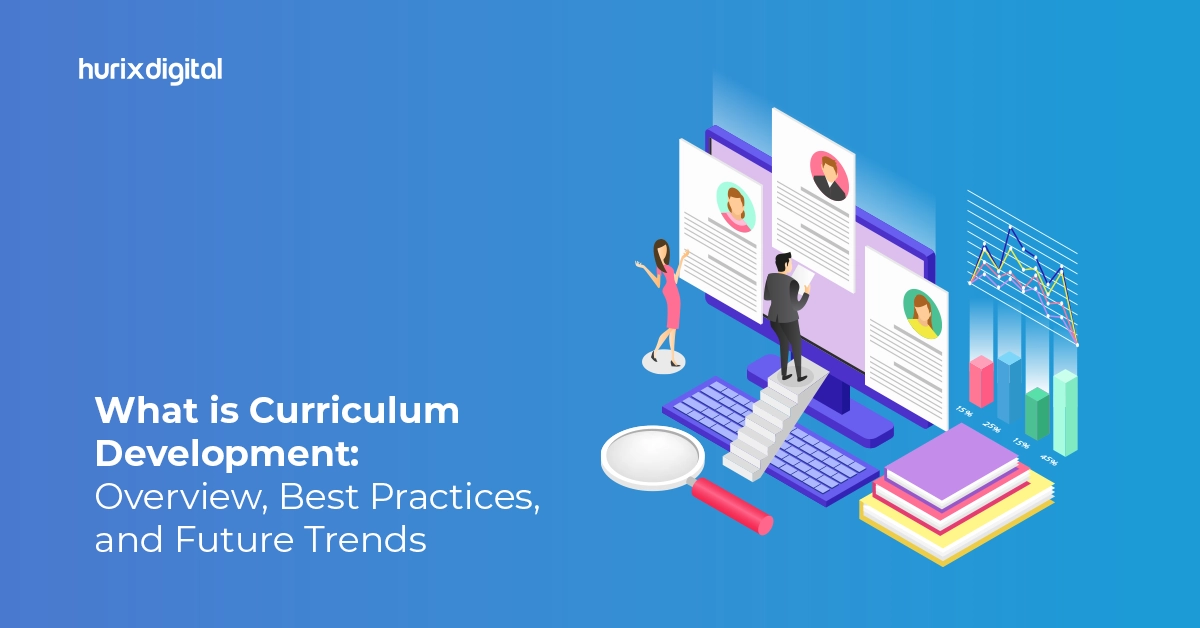
What is Curriculum Development? Overview, Best Practices, and Future Trends
Formal education has always focused on imparting bits and pieces of knowledge to help learners segue from the basics to the advanced. While this might have been a good idea many decades ago, the world today is changing too fast and too much for such a static education system.
More voices today are calling for a radical change in curriculum development to incorporate both the needs of the hour and those of the future.
In this article, we discuss best practices in curriculum development from the lens of contemporary learning trends and needs, such as online learning.
Table of Contents:
- What is Curriculum Development?
- Evolution of Curriculum Development
- Top 7 Challenges in Curriculum Development
- Top Factors to Consider Before Initiating Curriculum Development
- What are the 11 Best Practices of Curriculum Development?
- Don’t Create a One-Size-Fits-All Curriculum for Every Learner
- Involve Learners in Co-Creating the Curriculum
- Take Advantage of the Current Technology and Insights to Future-Proof Learning
- Develop Lessons that Support Microlearning
- Adopt Three-Dimensional (3D) Learning Practices
- Follow Industry and Workforce Trends
- Make Interdisciplinary Connections
- Indulge in Continuous Testing and Feedback
- Develop International Awareness and Cultural Empathy
- Facilitate Teacher Development
- Design for Flexibility and Scalability
- Upcoming Curriculum Development Trends That Will Change the Education Industry
- Role of Technology in Designing Curriculum
- How Hurix Digital Empowers You with Powerful Curriculum Development Tools?
What is Curriculum Development?
A curriculum refers to the concepts and experiences learners encounter within a particular subject/course during learning.
Curriculum development is the process of planning the curriculum and the way instructors impart this knowledge as part of the coursework.
Whether they are K12 teachers or corporate trainers, curriculum development adds tremendous value in making the teaching-learning experience more enriching and engaging to all participants.
Evolution of Curriculum Development
The concept of creating a curriculum for learners has been in existence since the Classical Greek Periods. Philosophers like Plato and Aristotle wrote about the importance of a formalized structure of education.
Initially, these early-era curricula focused on disciplines like literature and trade, with some focus on the day-to-day responsibilities of learners.
With the arrival of the Age of Discovery, subjects like mathematics, science, and geography become part of the curriculum. Many centuries later, globalization led to the inclusion of English, indigenous languages, and humanities within formalized education.
One of the cornerstones of curriculum development has always been strong theoretic frameworks. Unfortunately, this pedagogy did not focus as much on practical implementation, hands-on experience, collaboration, teamwork, communication, and critical thinking – which are all essential for learners to thrive in the world today.
As a result, despite the development of new-age content that’s suited to today’s time, curriculum development training standards have continued to remain woefully outdated. This has led to problems that affect the quality of learning provided.
Top 7 Challenges in Curriculum Development
Some of the difficulties faced when developing a curriculum include:
- Restrictive understanding of what should constitute a holistic curriculum.
- Existing curriculum heritage focused on subject/field centricity and conservative values.
- Absence of learner input in the curriculum being developed.
- The curriculum is not optimized for digital learning.
- Lack of adequate financing to obtain resources to meet contemporary academic needs.
- Limited access to the correct technology that can support the new-age curriculum.
- Resistance to the changes that are needed to support modern learning pedagogies.
Also Read: Top 6 Challenges Facing CBC (Competency-Based Curriculum)
Top Factors to Consider Before Initiating Curriculum Development
Below are critical factors guiding the process:
- Student-Centric: Construct a customized learning experience by studying the diverse needs, preferences, and goals of students.
- Institutional Goals and Vision: Align curriculum goals with the institution’s mission, strategic goals, and commitment to innovation in K12 and HE.
- Industry and Workforce Relevance: Ensure the curriculum represents the current industries and competencies, preparing the students for dealing with challenges and opportunities in life.
- Technology Integration: Utilize existing technologies to facilitate individualized learning experiences, from adaptive learning environments to digital resources.
- Stakeholder Collaboration: Involve faculty, students, and industry professionals in co-creating a curriculum that represents various views and requirements.
What are the 11 Best Practices of Curriculum Development?
The only way to overcome these challenges is to actively incorporate current trends in curriculum development designed to bring K12 education and L&D programs into the modern era. Some of the best curriculum development practices that we recommend are as follows:
1. Don’t Create a One-Size-Fits-All Curriculum for Every Learner
Each learner has different needs and diverse learning styles.
When creating a curriculum, instructors must consider what modes of knowledge sharing will have a positive impact on all learners. Combining text with lectures, simulations, games, videos, audio, etc., can ensure no learner is left behind.
2. Involve Learners in Co-Creating the Curriculum
Allow learners to provide insights about the areas they need to work on or where they want more knowledge/practice.
Focusing on more learner-centric curriculums will ensure learners remain interested and engaged throughout the lessons. Course completion, knowledge retention, and skills transferability rates will also be very high.
3. Take Advantage of the Current Technology and Insights to Future-Proof Learning
Technology like artificial intelligence, machine learning, and natural language processing are helping generate rich insights about the way the world is transforming today.
Instructors now have a front-row seat for what type of skills job seekers may expect in the next 3, 5, or 10 years. You can use these cutting-edge tools and the insights they generate to develop a curriculum that will help learners gain the competencies they need for their future professions.
4. Develop Lessons that Support Microlearning
Microlearning is any type of learning that takes 1 to 5 minutes to complete. Given how the learner attention rate is decreasing each year, microlearning can ensure learners remain tuned into their lessons and complete the course of their own accord.
Microlearning can support easy remote learning, which is great when learners need to take classes/training outside of their institutions/offices.
5. Adopt Three-Dimensional (3D) Learning Practices
3D learning leverages the power of science and technology to make STEM learning more realistic, practical, engaging, and useful.
Three-dimensional learning allows learners to use the technology and techniques used by STEM professionals on the job to experience STEM concepts rather than just read about them.
This new-age learning pedagogy has proved exceptionally powerful in making STEM more accessible to learners of all ages and calibers.
6. Follow Industry and Workforce Trends
Long-term curriculum relevance will be achieved by involving modern industry practices and trends in the future. Organizations must ensure that the courses developed are for a new field in rising industries. It is significant to gain consultation with industry experts for workforce requirement insights.
7. Make Interdisciplinary Connections
Interlink disciplines to create a holistic curriculum for learning with a composite of skills from various fields. Learners will be well-equipped with teamwork and problem-solving skills through interlinked disciplines
8. Indulge in Continuous Testing and Feedback
Continued testing will help understand the applicability of the course curriculum to its learning objectives. Adopt formative as well as summative evaluation to track progress and enhance course content based on students’ feedback to suit better.
9. Develop International Awareness and Cultural Empathy
It is a requisite to prepare students for a globalized world. Educational institutions must frame learning courses and conduct exchange programs on the subject of international issues, diversity, and cultural competence. This will promote cross-boundary interaction and give more global exposure to students.
10. Facilitate Teacher Development
Equip educators with skills and resources to facilitate the curriculum. Organizations must train through workshops concerning innovative teaching methods and ensure involvement in the curriculum development process by faculty members.
11. Design for Flexibility and Scalability
Develop a curriculum that is responsive to shifting educational and societal demands. Design programs as personalized modular systems and prescale for various groups of students and those who will come in the future.
Upcoming Curriculum Development Trends That Will Change the Education Industry
In addition to employing these best practices, instructors must also develop their curriculum, keeping in mind the future trends in the academic field. Here are some trends gaining momentum now:
1. A Constructivist Approach to Education
Constructivism is an approach that focuses on individual empowerment, where learners actively engage with learning and construct learning experiences that are right and relevant for them.
Rather than passive curriculum development, instructors must allow learners to build their curriculum and provide the necessary guidance and support to help them meet their learning goals.
2. Learning Dissemination Through Digital Devices and Platforms
While textbooks and physical research papers still have a place in the academic system, today, digital learning has gained a lot of ground.
More instructors are using desktop/tablet/mobile-based platforms like Hurix to offer custom online courses. Companies like Udemy and Coursera are making certifications from diverse universities/companies accessible to learners everywhere.
Even platforms like YouTube and TikTok are being used to provide detailed and microlearning material to learners. This will continue to be the reigning education trend in the future.
3. Disability-Accessible Learning Experiences
More cultural institutions like museums, art galleries, and libraries are making braille-based learning resources available for learners.
More academic websites are meeting ADA and WCAG requirements and are screen-reader friendly and sensitive to the needs of people with different disabilities.
Curriculum developers need to be cognizant of the learning needs of individuals who are differently abled and make course plans available for all learners.
4. Super Specialized Course Development
The days of students learning the same, generic course material throughout their K12 years are gone.
More academic institutions are focusing on introducing super-specialized disciplines to younger grades to get students ready for their chosen careers. Curriculums must focus on balancing general disciplines and specialized subjects.
5. Geopolitical Learning
The world is more interconnected than ever. This is why learning should become global too.
Curriculums must be designed through a geopolitical lens to equip learners with the worldview they need to navigate changing futures and collaborate with people across cultures on the job.
Role of Technology in Designing Curriculum
Technology plays a transformative role in curriculum development, as it enables customized learning experiences and unique education solutions. This makes curricula relevant, engaging, and effective for any learner. Emerging technologies include AI tools, VR, eLearning portals, and hybrid and flexible learning models.
Here is how technology enhances curriculum development, ensuring custom learning experiences:
- Facilitating Personalized Learning Experiences
Technology enables customized learning paths tailored to individual students’ needs. Adaptive learning platforms adapt their content in response to student performance and AI-based applications create customized recommendations of materials and exercises.
- Enhance Data-Driven Decision Making
Advanced analytics inform curriculum design and building results. Student interaction and performance indicators are monitored for course contents, and trends and gaps are discovered to provide modern education solutions.
- Support Collaborative Learning Settings
Technology enables students, teachers, and industrial professionals to collaborate. Discussion forums, virtual whiteboards, and group work platforms can be leveraged.
- Promote Readability and Accessibility
Digital tools are breaking barriers in education by being inclusive to every learner. Organizations are introducing assistive technologies for students with disabilities and multilingual resources and content for diverse populations.
- Process Real-World Applications
By introducing simulations, virtual labs, and augmented reality for application into work life, the curriculum will be designed around industry-standard software and tools.
- Continuous Innovation
The technology ensures that shifting educational and social needs convert into curriculum change in real-time. Institutions need to integrate leading-edge technologies along with generative AI, VR, and IoT in curricula. This facilitates quick updating of course materials that could correspond to the latest developments.
Also Read: 4 Proven Metrics to Assess AI’s Impact on Curriculum Design
How Hurix Digital Empowers You with Powerful Curriculum Development Tools?
A future-ready curriculum isn’t hard to create with the right technology by your side. That technology is Hurix Digital.
At Hurix Digital, we have over two decades of experience providing content authoring and content distribution services to our K12 and corporate clients. Our intuitive platform has been built to help instructors plan, execute, and monitor their curriculum closely.
Hurix Digital’s learner analytics and reporting feature allows you to get deep insights about learner engagement with each piece of content. You can track lesson engagement rates, drop-off rates, completion rates, and information retention rates.
With this information, you can also check which type/format of content is the best for meeting your learning goals for your target audience. Based on these detailed metrics, you can modify the curriculum you offer.
Easily create and upload multi-format content in grade/discipline/concept-specific playlists. From theoretical learning to experiential learning, you can design bespoke material for your lessons. Control access to content based on identity verification. Encrypt data seamlessly and protect it with Hurix’s DRM and IPR features.
With Hurix Digital by your side, you can leverage the benefits of modern trends in curriculum development. Contact us today to discuss your needs with a member of our team.

Senior Vice President – Business Development
at Hurix Digital, with over 25 years of experience in EdTech and workforce learning. He excels in business development, customer relationship management, and scaling digital learning solutions, driving global growth through innovative content, simulations, and AI‑driven training offerings

